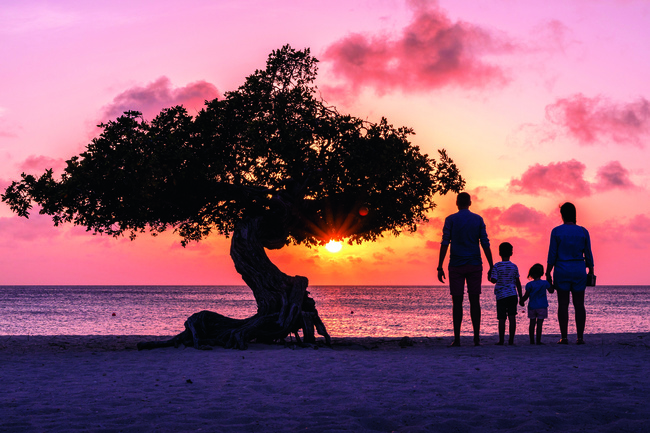Brits Prepare for ‘Sunshine Saturday’ as Expert Reveals the Brain’s Need for Holidays – Plus the Recommended Annual Number
Sunshine Saturday (6 January), the year’s most popular day for booking holidays, is just around the corner, and an expert has explained why our brain actually ‘needs’ a holiday, not just wants one.
TV psychotherapist Anna Williamson discusses how the action of researching and booking holidays can beneficially change our brain chemistry.
Anna, a 42-year-old from Hertfordshire, also sheds light on why opting for a weekend break might be more beneficial than a longer trip and at what point in a holiday our mind and body start to truly relax.
Furthermore, Anna answers a critical question: how many holidays are necessary per year to feel fully rested?
“I would say we don’t just want a holiday… we need it,” says Anna, who partnered with TUI for this research.
“Following the December festivities, many experience a hormone crash. Our brain chemistry, which was elevated by joy, now craves another hit of oxytocin and dopamine – our brain’s reward, comfort, and love hormones. This is the driving force behind the rush to book holidays in January, giving rise to the Sunshine Saturday trend,” she explains.
Research shows that ‘braincations’ are beneficial, as they release neurotransmitters, enhancing mood, reducing stress, and improving cognitive function. Holidays not only promote creative thinking but also provide lasting benefits to the nervous system, aiding recovery from health issues such as strokes and improving heart health.
According to TUI’s study, most Brits start looking for their yearly holiday on New Year’s Day, with about 37% likely to book a summer holiday around this period. On average, it takes an adult 53 hours to find their perfect holiday.
So, what is the ideal number of holidays per year? Anna states: “There is no fixed amount of time humans need to stay healthy, but a minimum of two holidays a year is generally considered sufficient. Frequent breaks every two months, even if just for a day or two, are essential to avoid anxiety, stress, fatigue, and illness. Some studies also suggest that multiple shorter breaks throughout the year are more beneficial than one long holiday.”
As for the type of holiday – a weekend city break or a two-week-long beach vacation – the decision is personal, but certain factors are worth considering.
“Studies indicate that the most restful point of a holiday is three days in. However, for those who prefer longer vacations, eight days might be the optimum duration. The pressure of a single annual holiday can sometimes be counterintuitive, due to stress over making it perfect,” Anna adds.
The joy of holidays isn’t just experienced during the trip itself – even planning a holiday affects the brain. “When we start browsing online for holiday deals, our brain begins anticipating a reward, releasing dopamine, a chemical linked to pleasure,” Anna says.
TUI’s previous research reveals that Brits feel their ‘peak’ holiday mood 43 hours into a trip, but this sensation wanes around 3.7 days after they return home. Interestingly, over 20% of people book their next holiday less than a month after returning.
TUI anticipates stronger sales this January compared to January 2022 and January 2020, pre-pandemic.
Holidays are also known to improve sleeping patterns, with effects lasting up to two weeks after returning. What you do during the holiday also influences how rested you feel afterwards.
“Neuroscience studies suggest that experiencing something new, like exploring a new destination or trying a new activity, gives the brain a ‘novelty’ hit. Even meditation during a trip can extend the post-holiday high,” Anna remarks.
Anna advises: “Be clear about your holiday intentions, whether it’s for relaxation or adventure. Choosing the right companion is essential. To achieve full rest, moderation is key. Enjoy yourself, but incorporate exercise, mindful eating, and hydration into your routine. Daily walks are crucial for vitamin D intake and overall physical health.”
For Anna, regular holidays align with her family’s “freelance lifestyle”. “We relish our family holidays, aiming for four a year. I also schedule couple’s retreats and mother-daughter trips. Holidays are vital for escaping daily pressures and enhancing relationships,” she concludes.
After booking a holiday, 65% report feeling ‘excited’, 35% ‘satisfied’, and 34% more cheerful. The most popular choice is a European beach holiday, with varying lengths preferred.
Phillip Iveson, TUI UK & I’s commercial director, states: “There’s always a spike in holiday bookings post-Christmas. Our wide range of deals caters to every travel preference, and we’re excited to welcome our customers on their holidays this year.”
FACT BOX: TOP NINE REASONS FOR BOOKING A SUMMER HOLIDAY NOW
- To have something to look forward to (44%)
- It’s exciting looking for somewhere to go (33%)
- I think it’s cheaper to book then (25%)
- It helps get me/us through the most miserable part of the year (23%)
- I feel we physically and emotionally need a holiday (22%)
- Always book a summer holiday after Christmas (20%)
- We have to book them off work before other people get that time off 12%)
- We are exhausted after Christmas and booking a holiday gives us a buzz (12%)
- We’re both off work so it’s easier to find the time to look around (11%)

